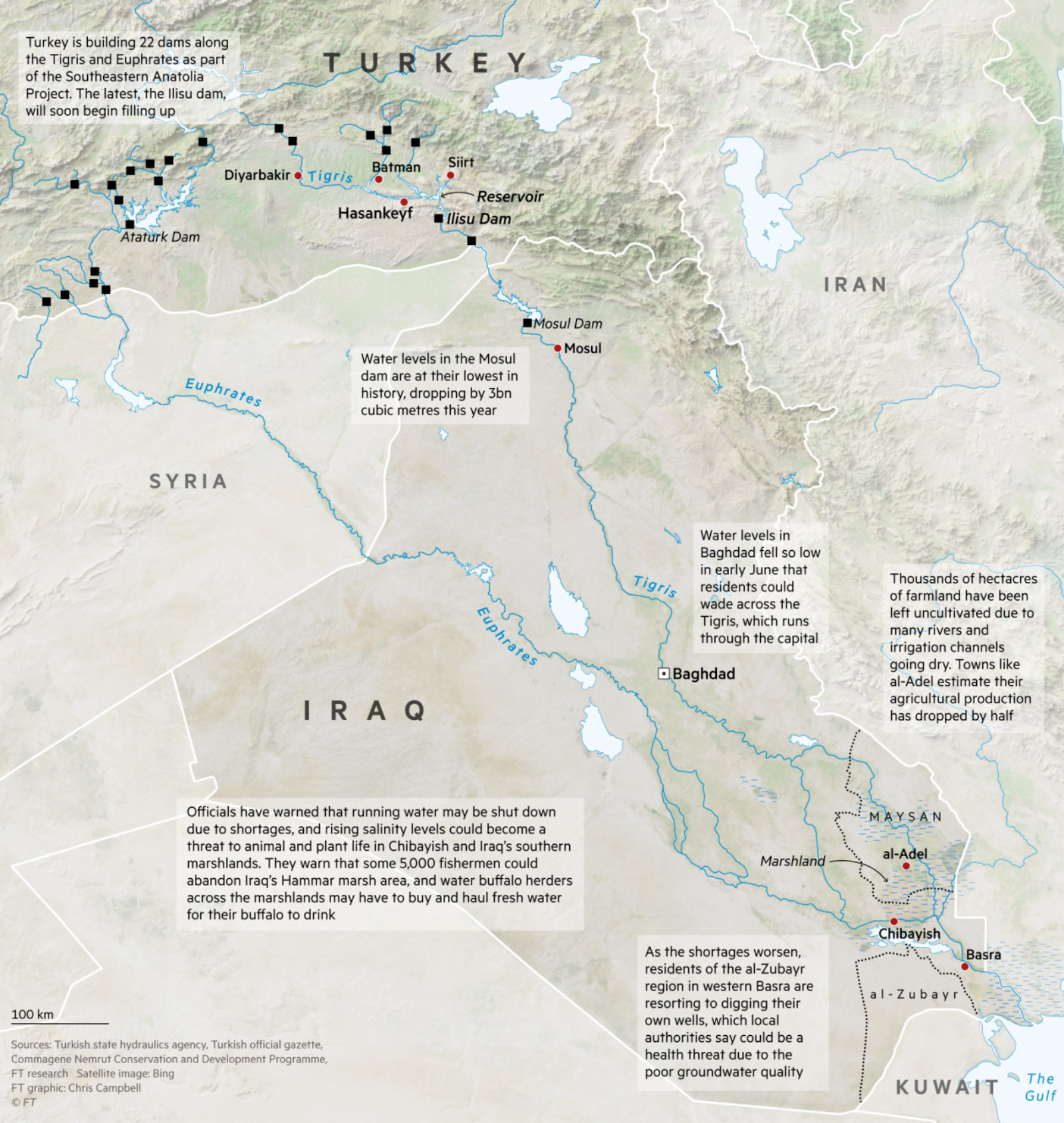Water is more precious than oil in the Middle East

Water is more precious than oil in the Middle East where it constitutes a maincomponent of the political landscape, John Dizard writes in a piece for the Financial Times. Dizard looks at water shortages in Iran and Iraq due to reduced flow from Turkey as a model for the existing power struggle over water in the Middle East to explain just how far reaching the impact of those can be, particularly in countries where the water conservation culture is so nascent and agricultural practices remain, to a large extent, fairly primitive. He explains that Turkey’s plans to fill a new dam reservoir ahead of schedule and build as many as 22 dams along the Tigris and Euphrates rivers has been used as a tool to pressure its neighbors to either be “less tolerant of Kurdish nationalists or find water elsewhere, somehow.” In Iran, where drought affects around 97% of the country, farmers demonstrated against a lack of water; and in Iraq “water levels in Baghdad fell so low in early June that residents could wade across the Tigris, which runs through the capital.”
Will Egypt meet a similar fate? Dizard points to the fact that Ethiopia managed to capitalize on the ensuing chaos from the Arab Spring to begin building its own “long-planned” dam upstream from Egypt, noting that now “it will be hard to stop.” The Grand Ethiopian Renaissance Dam (GERD) has been a point of contention in relations between Cairo and Addis Ababa, as well as Khartoum, who have only recently started taking steps to resolve their dispute, which stems from Egypt’s concerns that the GERD will have a negative impact on our share of the Nile Water. The government has been taking preemptive measures, as Ethiopia inches closer to filling the dam’s reservoir, by issuing new water rationing policies and trying to diversify its sources of water by building new water desalination plants and digging for more ground water.